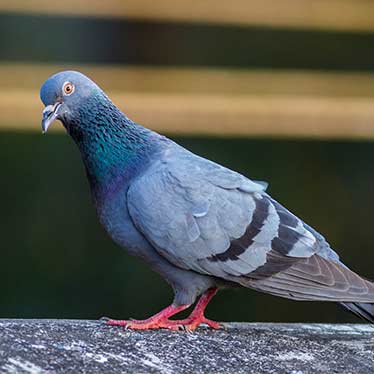CHANDIGARH: In Punjab, local pigeons are proving to be “bio-indicators” to detect heavy metals in the soil or water. As per a latest study, faecal matter of Blue Rock Pigeons has shown the presence of heavy metal contamination in rural areas of Punjab. This study has been published in the Indian Journal of Entomology by Simranjit Kaur and Prerna Sood from the Department of Zoology, Subharti University, Meerut, Uttar Pradesh and the Department of Zoology, Punjab Agricultural University, Ludhiana. The study was conducted in three different locations in Punjab and found heavy metal toxicity at its peak in those locations. The study was done to assess the heavy metal contamination in the excreta of Blue Rock Pigeons from rural areas of Punjab. This study was conducted in three locations. Location 1 was Agronomy Farm, Punjab Agricultural University, Ludhiana. Location II was Cold Storage, Jalandhar Bypass and Location III was Cold Storage, Mullanpur. The results revealed that the levels of Arsenic (As), Chromium (Cr) and Cadmium (Cd) were greater than normal levels in the excreta of pigeons from all three locations and for Lead (Pb), it was above the toxic level at Location II and III.
Lead (Pb) levels were observed to be more than the toxic range from both locations. Concentrations of heavy metals were higher in locations II and III because these locations are close to the road and have more industrial units than location I. Therefore, the study revealed that pigeons’ excreta can be used as bio-indicators for detecting heavy metal levels, that too without any invasive intervention.
As per the study, the locations were close to G.T. Road, which implies that the vehicle waste adds various toxins that contribute to air, soil, and water contamination. Due to the Blue Rock Pigeon’s great density in some regions, their waste was readily accessible. Spreading plastic sheets underneath the trees at the roosting/nesting sites allowed for the collection of both hardened and fresh excrement. With the aid of the spatula, the excretions were placed in the sterile vials and transported to the laboratory. The samples were properly labelled with the source, time, and date of collection before being placed in the refrigerator to be used later. Excreta was physically examined to note their texture, colour, consistency, visible constituents, and shape. Excretion of heavy metals in the faecal matter of birds has received attention because according to Wildlife Protection Act 1972, the capturing and killing of birds are legally banned by the Government of India; therefore, any analytical studies which make use of bird tissues and organs are away from the experts working in this area. Besides, in India, studies on heavy metal pollution in bird excreta are restricted.
Pigeons’ faecal matter helps identify heavy metals in Punjab locations: Study
- Advertisement -

